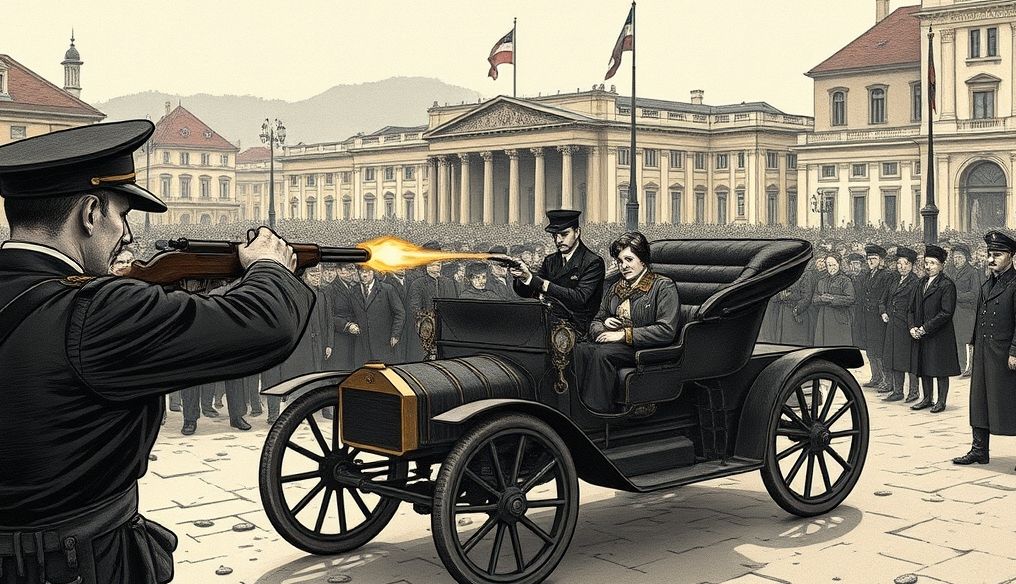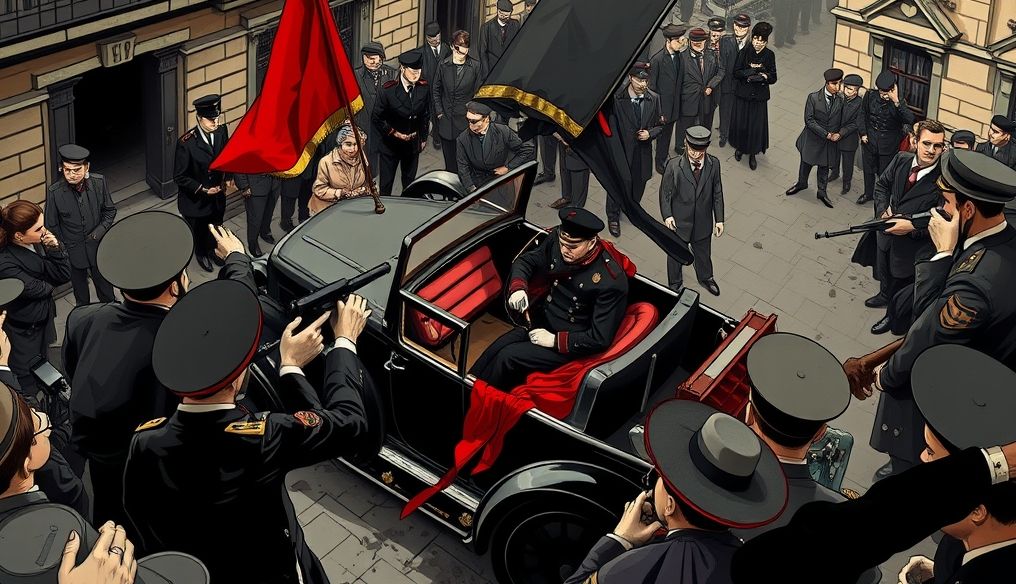Introduction
World War I, which broke out in 1914, was a devastating global conflict that changed the face of Europe and the world. The assassination of Archduke Franz Ferdinand of Austria-Hungary in Sarajevo is often cited as the immediate cause of the war, but the truth is more complex. There were a series of political, economic, and military factors that contributed to the outbreak of this catastrophic conflict.
1. The Assassination of Archduke Franz Ferdinand: The Spark That Ignited the War
On June 28, 1914, Archduke Franz Ferdinand, heir to the Austro-Hungarian throne, and his wife Sophie were assassinated in Sarajevo by Gavrilo Princip, a Serbian nationalist member of the "Black Hand" organization. This assassination was the spark that ignited the war, but it was not the only cause.
- Political Background: The Balkans region was experiencing increasing ethnic and national tensions, with Serbia seeking to unite all South Slavic peoples under its rule.
- Reactions: Austria-Hungary used the assassination as a pretext to invade Serbia, supported by Germany.
2. Military Alliances: A Complex Web of Commitments
Europe was divided into rival military alliances, making any local conflict prone to escalating into a full-scale war. The most important of these alliances were:
- The Triple Entente: Great Britain, France, and Russia.
- The Central Powers: Germany, Austria-Hungary, and the Ottoman Empire (later).
Because of these alliances, when Austria-Hungary declared war on Serbia, Russia was forced to intervene to protect Serbia, leading to Germany declaring war on Russia and France. Britain then intervened to protect Belgium, whose neutrality had been violated by Germany.
3. Imperialism and Colonial Rivalry
The competition between European powers for colonies and resources in Africa and Asia was a major cause of tensions. Germany sought to expand its colonial influence, which worried Britain and France, who already possessed vast empires.
- Arms Race: Colonial rivalry led to a frantic arms race, as each country sought to build a stronger army than its rivals.
- Economic Interests: Conflicting economic interests played a significant role in increasing tension between European countries.
4. Extreme Nationalism: Igniting the Fire of Hatred
Extreme nationalist ideas spread throughout Europe, promoting a sense of national superiority and hatred towards other countries. In Germany, there was a strong movement calling for a "Greater Germany" that included all German-speaking people in Europe.
In the Balkans, Serbian nationalism threatened the stability of the Austro-Hungarian Empire, which included many South Slavic peoples.
5. Diplomatic Errors and Misjudgments
European powers made a series of diplomatic errors and misjudgments in the weeks leading up to the war. There was a lack of communication and mutual understanding, which exacerbated tensions and accelerated the pace of events towards war.
Germany believed that Britain would not intervene in the war, which proved to be a fatal mistake. Austria-Hungary also underestimated the strength of Serbia and its determination to resist.
6. Arms Race: Preparations for War
The arms race created an atmosphere of tension and fear in Europe. Each country was investing heavily in its army and weapons, making war seem inevitable.
- Large Armies: European countries maintained large, well-equipped armies, making a devastating war possible.
- Military Plans: Each country had detailed military plans for war, meaning that war could begin quickly once the decision was made.
7. Economic Crisis: Additional Pressures
Some European countries were experiencing economic crises, which increased internal and external pressures. Germany sought to expand its economic influence in Europe, which worried Britain and France.
Competition for natural resources, such as oil and coal, also played a role in increasing tension between European countries.
8. The Role of Political and Military Leadership
The political and military leadership in European countries played a crucial role in the outbreak of the war. Some leaders believed that war was inevitable, while others were unable to prevent it.
- Wrong Decisions: Some leaders made wrong decisions that exacerbated the crisis and accelerated the pace of events towards war.
- Military Influence: The military had a significant influence in some countries, making it difficult for political leaders to control the situation.
9. Public Opinion and Propaganda
Public opinion and propaganda played a significant role in creating the atmosphere for war. Newspapers published articles inciting hatred against other countries, making war seem like an acceptable option.
Extreme nationalism also played a role in mobilizing public opinion to support the war.
10. The Immediate Consequences of the War
World War I led to the deaths of millions and the destruction of European economies. It also led to a change in the political map of Europe, as old empires collapsed and new states emerged.
- Treaty of Versailles: The Treaty of Versailles imposed harsh terms on Germany, leading to deep resentment in Germany and contributing to the rise of Nazism later on.
- League of Nations: The League of Nations was established to prevent another world war, but it failed to achieve this goal.
Conclusion: The assassination of Archduke Franz Ferdinand was not the only cause of World War I, but it was just the spark that ignited a conflict that had been brewing for years. There were a series of political, economic, and military factors that contributed to the outbreak of this catastrophic conflict.




